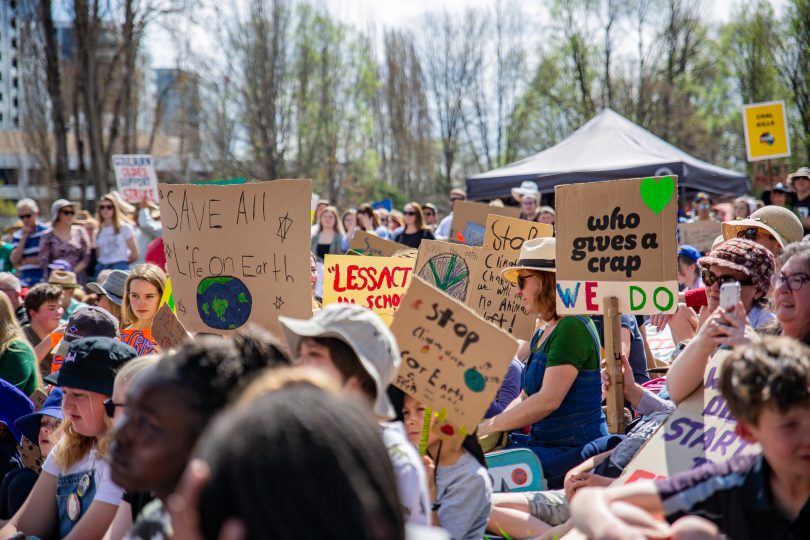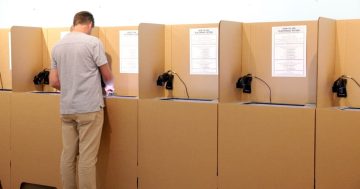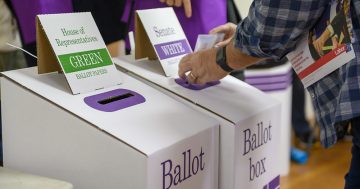
Young people may be engaged, but that doesn’t mean they should be given the vote. Photo: File.
The ACT Greens are nothing if not consistent in their belief that 16 and 17-year-olds deserve to vote in ACT elections.
The push goes back to 1996 and could easily be brushed off as being based purely on self-interest.
They might deny it, but the consensus is that in the ACT, a lot of teen voters, understandably freaked out about climate change, how the hell they might be able to buy a house and generational theft, might throw their lot in with the squeaky clean progressive Greens.
Well, political self-interest is not a crime and fishing for votes is part of the system.
Most of these kids work (part-time), even if they are still at school, pay taxes, use the Territory’s services, drive a car and have sex. Many are informed, articulate, and would like a say in running the place. Others are immature, disengaged, want to be left alone and don’t trust politicians.
Well, that sums up the electorate generally, and there is no doubt that age does not necessarily endow voters with wisdom.
So simply saying they’re too young won’t cut it.
A recent survey by the Youth Coalition found that most young people support extending voting rights. It argues that enfranchising while most are still at school would be the ideal opportunity to educate them about the electoral system as they start their voting journey.
But they should be careful what they ask for.
Youth has certain advantages – freedom from responsibilities, food and shelter provided (mostly) and the breathing space to make mistakes without too many consequences.
The corollary to giving 16 and 17-year-olds the vote is to also make them legal adults liable to be held accountable under the law for their actions and charged and tried as adults.
Suppose one discounts the fact that they are not fully developed human beings whose immature brains render them (mostly boys) incapable of understanding the consequences of their actions to allow them to vote. In that case, it follows that protections young people enjoy under the law are no longer valid.
That blurring of the line between childhood and adulthood could be one unfortunate and unintended consequence of fiddling with the voting age.
It is not that long ago that children were indeed thrown into the adult world – in mines and factories, on farms and ships. Rightly they were given protections that evolved to what we have today.
The lure of adulthood is a seductive one, and it remains a universal experience for young people to want to leave their youth behind until they actually are encumbered by the rights and responsibilities of adulthood.
Adding another burden to a youth cohort, already weighed down by an ever complex modern world, seems unnecessary and unfair.
It comes down to where the line is drawn, as it must, and when people can assume their full rights and responsibilities under the law.
Since the conscription battles of the Vietnam War, that line has been set at 18, when most leave school and start to make their own way in the world, usually with some inkling of where they are heading.
That is now an established and fitting threshold that young people cross – a rite of passage that corresponds roughly with a coalescing of human development generally.
The Greens proposal may be well-meaning or simply served by self-interest, but it remains flawed and would not really enhance the system.
The best thing may be to stay: “You’ll get your chance.”
In the meantime, be informed, be engaged if you want, and bide your time.





















